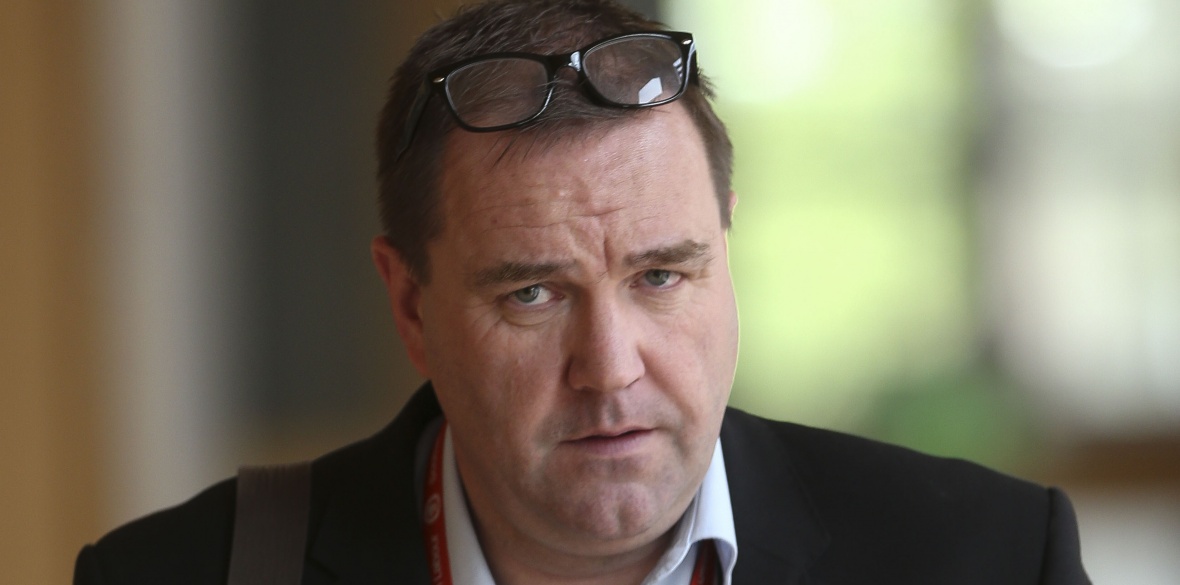This is the last article you can read this month
You can read more article this month
You can read more articles this month
Sorry your limit is up for this month
Reset on:
Please help support the Morning Star by subscribing here
LOTHIAN MSP Neil Findlay hasn’t minced his words following Scottish Labour leader Richard Leonard’s resignation on Thursday.
On BBC Scotland he savaged members of the party’s Scottish parliamentary group for “absolutely appalling behaviour” and having sought to undermine Leonard’s leadership from the very beginning.
“These flinching cowards make me sick,” he tweeted.
The picture he painted of an entitled cohort working day-in, day-out to sabotage the party’s elected leader, leaking against him and isolating and bullying anyone associated with him, will be familiar south of the border too, since it has much in common with the bulk of the Parliamentary Labour Party’s conduct when Jeremy Corbyn led the Britain-wide party.
It too reflects the determination of Labour rightwingers to stop the party promoting a positive socialist vision for change.
Yet surely the stories that Sir Keir Starmer made the decision on Leonard’s departure would be anathema to an autonomous party, one which has to compete with the Scottish National Party as a representative of Scottish people and not a branch office of the British party?
“I’ve seen no attempt to deny or distance themselves from the accusation that Starmer’s office intervened,” Findlay tells the Morning Star.
“Remember these are people who said when Kezia Dugdale was leader that it would be a huge blow if the Scottish leader didn’t sit on the UK NEC — as if the electorate are watching who sits on the NEC.
“People whose mantra when Corbyn was leader was that Scottish Labour was autonomous — ‘don’t you dare come up and stamp on our autonomy’ — and who came down like a ton of bricks on Corbyn or John McDonnell if they came to Scotland and said anything on Scottish issues.
“These same people have absolutely nothing to say on the intervention of the UK leader prompting the Scottish leader to resign.”
Findlay has condemned the “frankly outrageous” reports that the immediate prompt for Starmer’s intervention was a call — apparently with other senior party figures including deputy leader Angela Rayner and general secretary David Evans — with millionaire donors who suggested they would not be prepared to donate to the party while it was led by Leonard.
The leadership of the party is a question for the members who pay their dues and devote their time to campaigning for it, he stresses, not the super-rich tycoons Starmer is wooing to plug the financial hole left by tens of thousands of members who have left since he became leader.
The party’s struggle to win back Scottish voters who deserted it en masse in 2015 — when it went from 41 of 56 Scottish seats in Parliament to just one — is linked to the constant sniping at Leonard, he says.
“You could have the finest policies, manifesto, programme you could dream of but if all you’re doing is fighting internal battles against people leaking against you, and attacking those policies, is it any surprise that the programme is not taken seriously?”
But the decision to remove Leonard is not new, with the leader having fought repeated plots and attempts to remove him in the past.
And he is not convinced a socialist candidate will even be in the running to replace him this time, saying a “poisonous” culture is driving committed socialists out of front-line politics.
Findlay is himself planning to step down as an MSP at the next election.
“It’s certainly a factor in me going — people in our communities are desperate for help at this point and have been for the last 10 years,” he says.
“But all our time is taken up by the spoilt brats throwing toys out of the pram because their candidate got beaten in a leadership election.
“The poisonous culture of the Labour group has been utterly dreadful.”
Findlay’s deeper fear is that the Labour right, if they regain the leadership, have no understanding of the factors that have driven working-class communities away from Labour in Scotland.
Pointing to Labour’s increased vote in 2017, he says: “Polling showed that the people who Labour won back in Scotland in 2017 were working-class voters, many who had voted Yes to independence in the 2014 referendum, who got excited by the Corbyn project and the Corbyn manifesto.
“It showed we were four times likelier to win these people back than voters who had switched to the Tories.
“Yet the strategy under Kezia Dugdale , which is the strategy of Leonard’s attackers too, is to target voters who have gone to the Tories with a hard unionist agenda that says no to any referendum, no to any further devolution.
“Well, self-evidently if you say that then the 50 per cent of the Scottish electorate who support independence will continue to vote SNP.
“What we should be saying is we want devo max, we will campaign for it in a multi-option referendum, and we will take part positively in such a referendum — bring it on.”

 Ben Chacko
Ben Chacko









